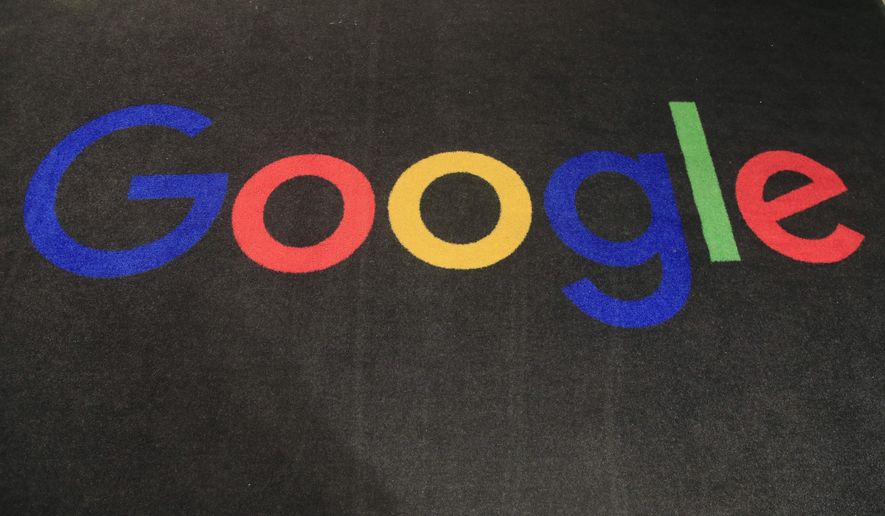Tech entrepreneurs are tired of waiting for Washington to challenge Big Tech and so they are doing it themselves.
New upstarts are looking to dismantle Google’s dominance in search, YouTube’s grip over video and Facebook’s stranglehold on the spread of information.
The newest challenger is You.com, a search engine unveiled in November that wants to dethrone Google’s position as the main gate for people to explore the digital world.
You.com CEO Richard Socher said one “monolithic monopoly” telling everyone what to read, write, consume and buy is crazy. People should be able to pick their own preferences.
Mr. Socher said he is hopeful for antitrust action from Washington, but he is not counting on it.
“You realize the privacy invasion, you realize the abundance of ads in those results, you realize that it’s probably time … to try out the new search engine,” Mr. Socher said. “So we hope that You.com, this is going to be a choice for many people.”
SEE ALSO: As lawmakers tussle with tech, libertarians argue parents should take charge
Mr. Socher’s team has prioritized privacy, which is reflected in the company’s opposition to targeted advertising. The search engine allows people to pick a customized experience or a private one.
When people browse in You.com’s private mode, it sends people’s anonymized search data to services that require it to return results, such as a weather service. Those external services won’t know who is searching, however, as You.com sends its internet protocol address instead of the IP address belonging to the searcher, according to the company’s website.
You.com’s search function also allows people to examine more results from various other platforms without needing to open a new tab or search on those other platforms directly.
Mr. Socher said You.com is not built around driving engagement, but enabling people to “search less, do more.”
When You.com launched with the help of $20 million from investors. You.com remains ad-free for now and Mr. Socher is closely guarding ideas about how to monetize the site, which he said he does not want competitors to know about.
Rumble, the video platform challenging Google-owned YouTube, has already had a big year in terms of raising money and growing its user base.
SEE ALSO: Senators propose to force social media platforms to reveal internal data
Rumble started in 2013 but caught a big break last year when former President Donald Trump’s disaffected supporters and others looked for new venues to speak freely online. In 2021, Rumble scored a large undisclosed investment from a group including billionaire Peter Thiel, who was an early investor in companies like Facebook, LinkedIn, and Yelp.
In December, Rumble announced that it was combining with a special purpose acquisition company sponsored by financial services firm Cantor Fitzgerald in a transaction that Rumble said would give it $400 million in proceeds, with $100 million fully committed.
Rumble’s user growth has helped attract the influx of cash. Rumble has said it had 36 million average monthly users in 2021’s third quarter, which jumped up sharply from 1.6 million average monthly users during 2020’s third quarter.
Rumble CEO Chris Pavlovski said the Canada-based company will open its U.S. headquarters in Sarasota, Florida, in 2022.
“I’ve been there quite a few times, to the Sarasota area, I really fell in love with the area, and the state, Florida, has been very friendly to Rumble,” Mr. Pavlovski said. “As you probably already know, Gov. [Ron] DeSantis has an official account on Rumble and so we felt going to a smaller town in the state of Florida was the perfect fit.”
Rumble has avoided taking political positions in its public promotions but the companies challenging prominent social media platforms like Facebook, which has reorganized as Meta, are much more comfortable doing so. The prevailing feature of many new conservative challengers to Facebook and Twitter is a commitment to free speech online.
Mr. Trump’s social platform TRUTH Social is not yet live — Apple’s App Store lists an expected launch date of February 2022 — but the parent company’s quick moves to raise funds have attracted scrutiny from the Biden administration and irked Sen. Elizabeth Warren, Massachusetts Democrat.
Trump Media & Technology Group, Mr. Trump’s team behind the social platform, earlier this year announced plans for a merger agreement with Digital World Acquisition Corp. (DWAC), a special purpose acquisition company. The U.S. Securities and Exchange Commission and the Financial Industry Regulatory Authority have each since requested information from DWAC, according to paperwork filed by DWAC with the SEC.
Ms. Warren recently urged the SEC to probe Mr. Trump’s new enterprise, but DWAC’s regulatory filings indicate the SEC sought information before she wrote to SEC Chairman Gary Gensler pressuring him to investigate Mr. Trump’s group.
While Mr. Trump’s team is working toward a formal launch and facing scrutiny from his political opponents, another platform popular with conservatives is looking to expand its business. Parler is back online after being booted from Apple and Google’s app stores and getting sidelined by Amazon Web Services in January 2021.
Parler has announced plans to work on “decentralized technology projects” starting with former first lady Melania Trump. Parler said it is providing MelaniaTrump.com with “programming, crypto, and operational infrastructure support” and has already assisted Mrs. Trump with the development of her non-fungible token platform.
Overtaking the tech titans remains far off on the horizon for the newcomers. The challengers, however, say they’ve learned lessons from early clashes with Big Tech — such as Amazon, Apple and Google roughing up Parler early this year — and are increasingly building their own infrastructure to avoid reliance on the dominant players.
Still, the startups all trail the Big Tech companies in audience size and market position. For example, YouTube touts having 2 billion monthly active users and Facebook has said it had 1.93 billion daily active users in September.
• Ryan Lovelace can be reached at rlovelace@washingtontimes.com.




Please read our comment policy before commenting.